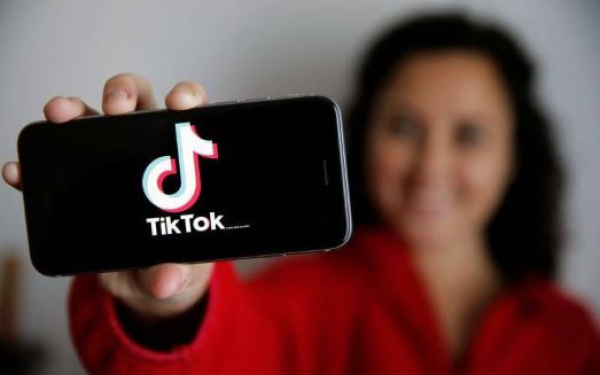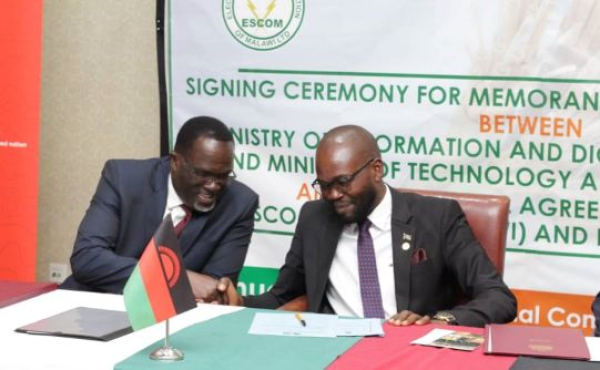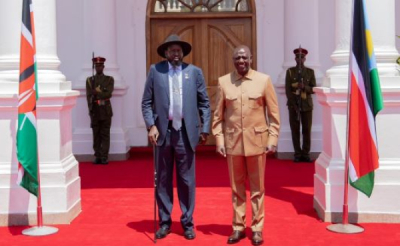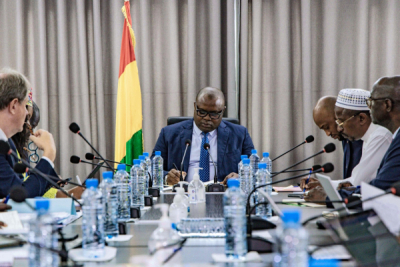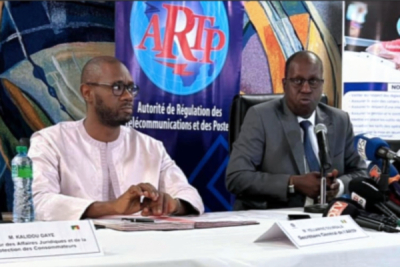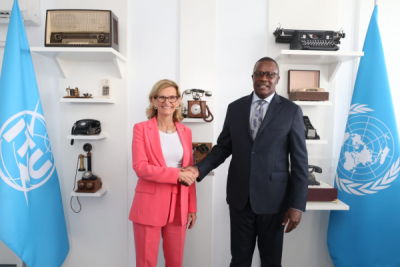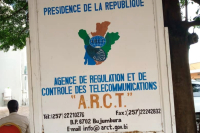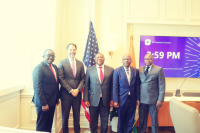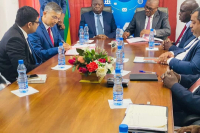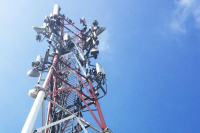
Telecom (150)
After much debate about the TikTok application, the Kenyan government has finally made up its mind. Unlike other African countries, the video-sharing app will not be suspended in the country.
TikTok recently committed to collaborating with Kenyan authorities to better control its content in the country. Kenyan President William Ruto made the announcement last Thursday, August 24, after a virtual meeting with TikTok CEO, Shou Zi Chew, who also agreed to open an office in Kenya to coordinate its operations in the region.
Kenya will work with the short-form video hosting service TikTok in reviewing and monitoring its content to ensure that it adheres to the agreed community guidelines and standards. It is our commitment that we bring up our children in the right environment.
— William Samoei Ruto, PhD (@WilliamsRuto) August 24, 2023
During a virtual… pic.twitter.com/ua1X8oL1sG
“Kenya will now work with the short video hosting service TikTok to review and monitor its content to ensure it adheres to the agreed community guidelines and standards. This new development means that inappropriate or offensive content will be removed from the platform,” said Ruto.
Barely 10 days before the announcement, Kenyan lawmakers received a petition from Bob Ndolo, a Kenyan businessman, highlighting the sharing of inappropriate content on TikTok and the collection of user data by its Chinese company. The parliament had decided to investigate the platform’s usage in Kenya and said it would decide in the following two months.
Earlier last week, Kenya’s neighbor Somalia banned TikTok, Telegram, and 1XBet, a betting platform. In a statement released on August 29, Somalia’s government blamed the platform of spreading misinformation and content that is harmful to national interests.
TikTok, which has more than one billion active users worldwide, is also suspended in Senegal, with authorities claiming that the platform is used to spread hateful and subversive messages that threaten the country's stability.
Samira Njoya
As part of efforts to develop its digital economy, Zambia has been partnering with various States that share its ambition.
Zambia and Malawi recently teamed up to reduce the costs of broadband connectivity in both countries. The two sides inked last week two major agreements in this framework. The first was between Malawi’s Ministry of Information and Digitization and Zambia’s Ministry of Technology and Sciences. The second was between the Malawi Electricity Supply Corporation (Escom) and Fibercom, a Zambian ISP.
Escom Malawi and Fibercom will, via their optical fiber cables, establish a diplomatic data corridor as part of their deal. This corridor will create an internet pathway through Zambia.
“The agreement on the diplomatic data corridor signed today lays the foundation for such connectivity to meet the communication needs of current and future generations. Escom, as the implementing agency on behalf of the Malawi government, is committed and ready to provide available, reliable, and affordable digital services,” said Escom CEO Kamkwanda Kumwenda.
The two agreements were signed in Lilongwe, Malawi. For Malawi, they will contribute to its ambition to achieve full digitization by 2063, and for Zambia, they are a major milestone towards its goals for accelerating ICT and Telecoms development by 2030.
Also, the partnership will help lower the cost of data, thus boosting access to Internet and consequently stimulating the partnering economies.
According to recent data from the Zambian Information and Communications Technology Authority (ZICTA), Zambia has 20.2 million mobile phone users, and 10.4 million internet users. As for Malawi, it had 5.04 million internet users at the beginning of this year, according to DataReportal. By 2026, the country seeks to have 80% of its population have access to the internet, against only 14% now. It also seeks to raise the mobile penetration rate from 51% to 80% over the same period.
Samira Njoya
Well aware that the country can have no sustainable digital economy without reliable and quality internet, the South Sudan government has been, since 2020, taking steps to reinforce its capacities in this aspect.
The Presidents of South Sudan and Kenya, Salva Kiir Mayardit and William Ruto, respectively, signed a fiber-optic cable deal last Saturday, August 19, in Nairobi. The cable will connect Eldoret in northwest Kenya to Juba, the capital of South Sudan.
William Ruto, on the occasion, said that the project will enhance connectivity, foster integration, and boost intraregional trade between the two countries.
The signing of a deal on the establishment of a fibre optic cable along the Eldoret-Juba Road validates Kenya’s commitment to strengthening its ties with South Sudan. pic.twitter.com/KcOPaRRN9k
— William Samoei Ruto, PhD (@WilliamsRuto) August 19, 2023
This project is part of the Lamu Port-South Sudan-Ethiopia-Transport Corridor (LAPSSET) project. Under the latter, seven key infrastructure projects will be developed in the three nations, to achieve economic growth and prosperity and reduce the infrastructure deficit.
Before the recent deal, Kenya and South Sudan already shared a fiber-optic cable. Indeed, in October 2020, 630 km of fiber-optic cable were deployed at the border between the two countries, under the regional project for the facilitation of transport, trade, and development in East Africa. The World Bank and the Kenyan government financed the cable’s establishment at the time.
The new interconnection will link the South Sudanese capital to the rest of the world. It will also reduce the high cost of the Internet, consequently improving cross-border communication and trade.
Samira Njoya
Digital technology is quite important for the Guinean government. The country already has many digital projects underway, and others waiting for funding to be launched.
Guinea's Minister of Posts, Telecommunications, and the Digital Economy, Ousmane Gaoual Diallo, met with a delegation from the World Bank led by Franz Drees-Gross, the institution's regional director for infrastructure, on July 18.
The Minister of Digital Affairs sought the support of the global financial institution for the implementation of several digital projects in Guinea, namely the West Africa Digital Integration Project (WARDIP), e-procurement, covering white areas, stimulating competition in telecoms, launching the national telecoms operator Guinea Telecom, and landing a second submarine cable.
Franz Dress-Gross showed a lot of interest in all of these projects, and new interviews were scheduled to expedite ongoing projects. Before this meeting, Ousmane Diagana, the World Bank's Vice President for West and Central Africa, announced the World Bank's intention to increase its funding in the digital economy in Guinea.
"The digital economy is a factor that can be a development accelerator, but also an element to help equalize access opportunities for all citizens to several services. We plan to significantly increase our funding in these areas. Better yet, ensure that existing programs, which are numerous in these sectors, can be executed more quickly," Diagana stated on Monday, July 17, following a working session with Guinea's Prime Minister, Bernard Goumou (pictured in the center).
The talks were held during a two-day visit to Guinea by a World Bank delegation led by Ousmane Diagana. Several topics were discussed during the visit, including job creation, human capital strengthening, and climate resilience consolidation.
Samira Njoya
5G will soon be deployed in Senegal. Sonatel recently won the bid to commercialize the technology in the country.
Senegal’s telecom regulator, the ARTP, has provisionally awarded the 5G license to the Sonatel group through its commercial brand Orange. Abdou Karim Sall, the director general of the watchdog, announced on July 17, 2023, during a press conference in Dakar.
L' artp a attribué la 5G à la Sonatel. L'opérateur historique a déboursé 34,5 milliards de CFA pour avoir la technologie de la cinquième génération(5G). L’Autorité de Régulation des Télécommunications et Postes (ARTP) avait lancé la procédure d’appel à candidature pour… pic.twitter.com/pZo1TlpdMf
— A.P.S - Sénégal (@APS_Senegal) July 17, 2023
According to the ARTP’s boss, Sonatel paid CFA34.5 billion (€52.7 million) for the technology. "The main goal is to allow all operators who wish to have a 5G license for the great benefit of users [...] We had set a reserve price of 19.5 billion FCFA. When we proceeded to the counting, we retained that of Sonatel since its offer was compliant," said Abdou Karim Sall.
The ARTP issued a call for bids on May 31 for operators interested in deploying the technology in Senegal. Three operators – Free, Sonatel, and Expresso – submitted bids.
Following the bidding, Free and Expresso were taken out because they did not respect the clause of the reserve price set at CFA19.5 billion, leaving Sonatel as the winner.
In the coming days, Sonatel will have to sign the concession agreement and specifications alongside the ministries in charge of Telecommunications and Finance. Afterwards, the President of Senegal will issue a decree and the ARTP will give its final approval for the official deployment of the 5G technology.
Deploying the technology in Senegal will enable Sonatel to meet the population’s growing demand for high-speed connectivity and new digital consumption modes, influenced notably by Covid-19.
Samira Njoya
Tech is a pillar of Kenya's socio-economic development strategy. Eager to digitize all the country's key sectors, Nairobi is looking for international partners.
The Kenyan Minister of Information, Communications, and Digital Economy, Eliud Owalo (photo, right), recently showcased his country's telecommunications and digital assets in Geneva, Switzerland.
On July 11, speaking at the International Telecommunication Union (ITU) 2023 Council meeting, Owalo noted that Kenya's digital network is ahead of most African countries. He then invited global development partners and investors to support the country’s ongoing digitization program.
"Kenya is keen on partnerships that will equip our youth with digital skills for digital jobs and also develop our ICT infrastructure, using affordable digital devices and finding jobs for young Kenyans in cyberspace," the Kenyan ICT ministry said on Twitter.
1/2 The Cabinet Secretary for Information, Communications and the Digital Economy, Mr Eliud Owalo today was hosted by the Secretary-General of the International Telecommunications Union (ITU), Ms. Doreen Bogdan-Martin, at the ITU Headquarters in Geneva, Switzerland. pic.twitter.com/kVs1HFJhQg
— Ministry of Info, Comms & The Digital Economy KE (@MoICTKenya) July 12, 2023
Over 5,000 government services have been dematerialized since Kenya started its digitization a few years ago; fiber optics are being deployed throughout the country, and public Wi-Fi access points have already been installed in several localities.
While lauding the achievements, Eliud Owalo said there’s still a lot to do. Indeed, if 98% of the Kenyan population has access to mobile phones and broadband services, around 1.7 million people still don’t. Also, about 45% of the population still doesn’t have access to smart devices in the country.
To meet this challenge, the Kenyan government is counting on its various international partners, including the US, with whom the Kenyan delegation has begun talks in Geneva.
1/3 The Cabinet Secretary for Information, Communications and the Digital Economy, Mr Eliud Owalo today held consultations with the leader of the United States Delegation to the 2023 ITU Council Meeting in Geneva, Ambassador at Large, H. E. Nathaniel C Flick. pic.twitter.com/h5Mllmhbdr
— Ministry of Info, Comms & The Digital Economy KE (@MoICTKenya) July 12, 2023
Samira Njoya
Burundi is getting ready to deploy 5G. Investments in networks are planned to accommodate this technology, which could potentially breathe new life into trade and services based on internet-dependent models.
The commercial launch of 5G mobile technology in Burundi is planned for July 2024. This is indicated in the schedule established by the Telecommunications Regulatory and Control Agency (ARCT) in its "Roadmap for the Deployment of Fifth-Generation Mobile (5G) in Burundi".
According to the regulator, "The first part consists of ensuring the availability of frequency bands identified for 5G but which are currently used for other purposes, through rearrangement and sharing mechanisms of said bands. The second part consists of planning the frequency bands allocated to 5G, and the third part consists of assigning the released and planned frequencies by the end of 2025".
To meet requirements for the launch, traffic-wise, the ARCT plans to assign each operator a continuous band of 60 to 100 MHz in the bands below 6 GHz and at least 800 MHz in millimeter wave bands (above 6 GHz). From next December, the regulator also plans to release spectrum in the 700 MHz, 2.3 GHz, 2.5 GHz, 3.5 GHz, and 26 GHz bands, with authorizations granted to test 5G from January 2024.
Deploying 5G in Burundi is key to the country’s strategy for digitizing its economy, and foster digital inclusion nationwide. Under the ARCT’s roadmap, 5G will not just represent a simple increase in data rates, but it will drive Burundi’s economic digitization.
Also, it will yield new uses, particularly thanks to the decrease in latency times, thus opening the way to new possibilities and applications, especially relative to the Internet of Things and connected objects in general.
According to the GSMA's "5G in Africa: Realising the potential" report, 5G mobile phone networks should represent, across their entire value chain, an economic contribution of $26 billion in Africa by 2030.
Samira Njoya
By 2050 Africa’s digital economy could grow to $712 billion or 8.5% of the continent’s GDP. Being a promising area, several African countries, including Côte d'Ivoire, have been taking steps to speed up their digital transformation.
Amadou Coulibaly, the Ivoirian Minister of Digital Economy, inked on June 28, two memoranda of understanding with Cybastion Institute of Technology, a US tech consortium. The Ivoirian sealed the deals during a trip to the US. They will support two major projects in his country, knowingly the establishment of an administrative city and the construction of a data center.
The MoUs will enable the physical regrouping of all Ivoirian public bodies involved in the digital economy. They will also help set up an emergency data center where all of Côte d’Ivoire’s administrative data will be transferred, thus contributing to national digital sovereignty.
Two events led to the signing. The first is a trip to Côte d’Ivoire by a delegation from the US chamber of commerce, in 2022. Next is the signing of an MoU between the Ivoirian Ministry of Digital Economy and Cybastion Institute of Technology on December 15, 2022, during the Africa-USA Summit.
According to Thierry Wandji, CEO of Cybastion Institute of Technology, the new MoUs pave Côte d’Ivoire’s digital revolution.
Côte d’Ivoire, it should be emphasized, is seeking a lot of funds to implement its digital infrastructure program. Last October, the West African country said it needed $3 billion (over CFA2,000 billion) for the project.
Besides the recent MoUs, the two parties signed a framework contract to bolster cybersecurity support in Côte d'Ivoire.
Samira Njoya
In 2021, Gabon started a three-year acceleration plan for economic transformation. This comprises several priority projects including the construction of a national datacenter to store all administrative data.
Last Thursday, June 29, Gabon's Minister of Digital Economy, Jean Pierre Doukaga Kassa, and the CEO of the Indian company Shapoorji-Pallonji, Ransit Gajave, signed a memorandum of understanding for the construction of a national data center in Gabon.
The Ministry of Digital Economy said on social media that the project is a high-priority one. Thus, “he instructed the general manager of the Digital Heritage and Infrastructure Company (SPIN) to sign the memorandum with Shapoorji-Pallonji, which holds a leading position in India for data center construction.”
Before the MoU’s signing, a delegation from the Indian contractor was in Gabon last March. At the time, the Asian firm said it wanted to help the African country design, build, and maintain its digital infrastructures, including data centers.
The national data center is extremely important for the Gabonese government and that is why the minister of digital economy quickly sealed the deal with Shapoorji-Pallonji. The official was well aware of the firm’s experience and achievements in Africa, including Egypt, Ghana, and the Democratic Republic of Congo.
Building the infrastructure, according to Doukaga Kassa, aligns with Gabonese authorities' ambition to make Gabon a digital hub in the Central African sub-region.
Samira Njoya
The rapid advancements in technology, surging data consumption, and the deployment of 4G and 5G networks in Africa intensify the need for telecom infrastructures. In response, the government and international partners are working diligently to address these needs within the digital transformation landscape.
The International Finance Corporation (IFC) loaned $60 million to telecom tower manager Eastcastle Infrastructure. This was made public in a press release issued on Monday, June 26. The funds will be used to enhance digital connectivity in the Democratic Republic of Congo (DRC), one of the least connected countries in Sub-Saharan Africa.
News Release 📢 Trigon Granted Permits to Highly Prospective High-Grade Silver Lead Ground in Morocco – Addana Project
— Trigon Metals (@trigonmetals) June 28, 2023
View it here: https://t.co/pxDYTjCtHz
Watch the full video: https://t.co/8LbSNk2Ql3$TM.V | $PNTZF pic.twitter.com/ktIHtJ2u25
Expressing his satisfaction with the IFC's investment, Peter Lewis, Co-founder and Director of Eastcastle Infrastructure Ltd., said: "We are delighted that following their equity investment in Eastcastle, the IFC has made $60 million in long-term financing available to our operations in the DRC. Together with the $34 million from Standard Bank of South Africa, this will enable us to surpass 1,000 towers in the DRC."
According to the release, the funding includes $30 million from IFC and an additional $30 million mobilized from the Emerging Africa Infrastructure Fund (EAIF). This is in line with Eastcastle's strategy to construct a maximum number of shared towers in the DRC. The main goal is to promote the digital economy in the region.
Back in 2021, the IFC had provided financing to support Eastcastle’s growth plans in Sub-Saharan Africa. Now with the new financing, the company will be able to lease its new towers to mobile network operators and other digital service providers in the DRC, thus helping expand their coverage, reduce operating costs, and minimize energy consumption through infrastructure sharing.
It is worth noting that the DRC has 48.4 million mobile phone subscribers. According to the latest data from the Regulatory Authority for Post and Telecommunications of Congo (ARPTC), the rate of penetration is 50.9%. However, the number of mobile internet users stands at 22.6 million, with a penetration rate of 23.8%. The expansion of Eastcastle's telecom towers network will improve the quality and coverage of telecom services in the country.
Samira Njoya
More...
With the ongoing digital transformation, African businesses need more broadband capacity to support their activities. Local and foreign companies are stepping up investments in this direction to better meet the growing demand on the continent.
Africa Data Centres (ADC), a subsidiary of pan-African digital services provider Cassava Technologies Group, has been chosen by the London Internet Exchange (LINX) as the Point of Presence (PoP) for the new East African interconnection center, LINX Nairobi.
The new partnership aims to improve connectivity and support digital growth in the region, the company announced in a statement on Wednesday, June 21.
"With LINX Nairobi, we are not only creating a hub for Kenya but for all of East Africa. The rapidly growing region has a huge demand for low latency, high speed, and improved interconnectivity. LINX Nairobi will not only serve local networks but also attract international Internet providers and hyperscalers," said Nurani Nimpuno, LINX's Global Engagement Manager.
This news comes after last month's announcement of a strategic partnership between the two organizations, ADC and LINX, to secure growth and opportunities in new markets in Africa, improve connectivity and bring digital services to citizens.
According to the press release, this new partnership will enable customers based at Africa Data Centres' Nairobi data center (NBO1) to have direct access to LINX Nairobi's new peering community via a single cross-connection. These customers will also benefit from additional services such as 24-hour support and access to the LINX portal. In addition, networks connecting to LINX Nairobi from any data center will be able to establish peering agreements, fostering a strong digital ecosystem and guaranteeing the traffic will remain local.
LINX Nairobi, due to go live in the coming weeks, is the region's first interconnected, multi-site Internet Exchange Point (IXP). The platform is designed to the same standards as LINX in the UK and USA, offering redundancy and resilience to the networks connecting to it.
Samira Njoya
In Africa, millions of residents still live with no access to high-speed Internet. The situation, which is the result of several factors, including poor telecom coverage and the cost of suitable phones, threatens digital inclusion, which is supposed to drive development.
On Tuesday, June 13, Angola's LiraLink Tecnologia and China's ZTE signed a partnership agreement to set up a cell phone assembly plant in Angola. The assembly plant, due to be operational in 2024, will focus on the manufacturing of 4G and 5G handsets.
The documents officializing this agreement were signed by LiraLink Managing Director Walter João and ZTE Group Vice President Ni-Fei, under the supervision of Angolan ICT Minister Mário Oliveira, on the sidelines of Angola's International ICT Forum (ANGOTIC), held from June 12 to 14.
The project was initiated to bring quality and affordable phones to the Angolan market. In its 2020 report "From luxury to lifeline: Reducing the cost of mobile devices to reach universal internet access", the Alliance for Affordable Internet (A4AI) found that the cost of smartphones is still quite high.
In the 187 countries surveyed, the average cost of a smartphone represents around 26% of an average monthly per capita income, or $104 according to A4AI. In some countries and regions, the cost is even higher.
In South Asia and sub-Saharan Africa, for example, the average cost of a smartphone exceeds 40% of the average monthly per capita income. "Even worse, in the Least Developed Countries, the average person would have to spend over half of their monthly income to buy a smartphone. Those in low-income countries have to spend almost 70% of their average monthly income to purchase the cheapest available smartphone on the market."
According to Lúcia Yang, ZTE's commercial zone manager, the smartphone assembly plant to be set up will also have a support center to meet customers' needs.
Muriel Edjo
Congolese authorities are keen on bringing better connectivity, including the 5G that presents numerous opportunities to African economies, in a context where demand for digital services is booming.
On Tuesday, June 6, telecom operator Orange announced the launch of the first test of its 5G network in the Democratic Republic of Congo (DRC).
The country, which has been connected to Orange's fiber optic network since February, already benefits from superior bandwidth, which will certainly be multiplied with the advent of 5G.
By launching the tests for this new technology, "Orange is expressing its desire to offer its business and individual clients an ultra high-speed mobile Internet connection [...] to meet the ever-increasing need for connectivity,” Orange informed via a press release.
Beyond improving connection speeds, the 5G network will facilitate the emergence of a huge IoT (Internet of Things) ecosystem, improving internet access for billions of connected objects thanks to a balanced compromise between speed, latency, and cost.
This improvement in responsiveness will also open up new prospects for users. These include the emergence of cloud gaming, enabling users to access gaming platforms directly on their smartphones with a smooth, enjoyable experience.
In the DRC, the introduction of 5G, combined with new technologies such as big data, AI, and augmented reality, aims to increase the telecoms sector's contribution to the country's economy. According to the telecom regulator’s mobile market observatory, this high-potential sector grew by 7.18% in the third quarter of 2022.
Samira Njoya
South Africa, like most African countries, faces growing demand for high-speed connectivity amidst accelerated digital transformation. Data service providers need more capacity to meet this demand.
The Independent Communications Authority of South Africa (ICASA) announced, Tuesday (May 23) it has released the lower 6GHz frequency band (5925-6425 MHz) to allow the provision of high-speed Wi-Fi connectivity.
According to the regulator, the additional spectrum can support more simultaneous connections, offer reduced latency, and provide faster data speeds, resulting in less interference, especially in potentially congested high-density areas and campuses.
The operation was completed through an amendment of Schedule B of ICASA's 2015 radio spectrum regulations. The Regulatory Authority began the process last December, following pressure from Internet service providers in the Rainbow Nation months before.
According to the Wireless Access Providers Association of South Africa (WAPA), the opening of the 6 GHz frequency band is expected to enable the deployment of Wi-Fi 6E, the latest Wi-Fi technology, bringing in as much as $57.76 billion to the country over the next 10 years.
“Overall, the implementation of the lower 6 GHz frequency band is expected to provide significant improvements, more robust and reliable wireless communications, and an enhanced user experience for both the consumers and businesses throughout the country,” the ICASA writes.
Isaac K. Kassouwi


